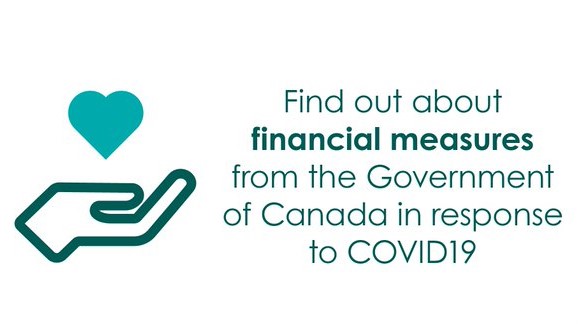Unprecedented and Uncertain times call for unprecedented action on the part of all levels of Government.
Here is a summary of the measures announced this week by the Federal Government (March 18/20), Please reach out and connect if I can help you understand your financial situation and which measures may help your personal situation
Personal Tax and Trust filings
- For individuals, the filing date for 2019 T1 tax returns are be deferred to June 1, 2020 from April 30th
- For unincorporated business owners (and their spouses) the filing due date remains June 15, 2020
- For Trust filings, the filing date for trusts with a year end of December 31, 2019 year end, will be deferred from March 31, 2020, to May 1, 2020
- Electronic signatures will be allowed to authorize tax filing by tax preparers on behalf of taxpayers
- Payment of tax amounts owing will be deferred until after August 31, 2020, for any income tax amounts that become owing after March 17, 2020 and before September 2020; this applies to tax balances due, as well as instalments, under Part I of the Income Tax Act (no interest or penalties will accumulate on these amounts during this period)
- Individuals who receive Goods and Service Tax Credits (GSTC) or the Canada Child Benefit should file as soon as possible to ensure entitlements to the 2020-21 benefit are appropriately determined
For those receiving Registered Retirement Income Fund (RRIF) payments
- The minimum withdrawal amounts from RRIFS will be reduced by 25% for 2020 because volatile market conditions have impacted retirement savings. Similar rules will apply to individuals receiving variable benefit payments under defined contribution Registered Pension Plans
Income support for workers and parents (EI and Emergency Care Benefits)
For Canadians without paid sick leave (or similar work accommodations) who are sick, quarantined or required to stay home to care for children
- One week waiting periods will be waived for Employment insurance (EI) starting March 15 for those in quarantine or directed to self-isolate
- There will be no requirement to provide a medical certificate to access EI sick benefits
- Emergency Care Benefits of up to $900 bi-weekly for up to 15 weeks to provide income support to
- Workers, including self employed who are quarantined or sick with COVID-19 or taking care of a sick family member with COVID-19 but do not quality for EI sick benefits
- Parents with children who require care or supervision due to school closures and are unable to earn employment income irrespective of whether or not they quality for EI
Emergency Care and Emergency Support Benefit applications available April 2020
For Canadians who have lost their jobs (including temporarily) or had their hours reduced
- An emergency support benefit will be delivered through CRA to provide support to those who are not eligible for EI and are facing unemployment (undisclosed amount)
- EI work sharing program will be available to provide EI benefits to workers who agree to reduce their hours as a result of developments beyond the control of their employers, by extending the eligibility of EI agreements
For Canadians with low and modest income
- GST Credit-One-time special payment by early May 2020 through the GSTC to double the maximum annual GSTC payment amount for 2019/2020. $400 for single individuals and $600 for couples.
- Enhanced Canada Child Benefit-an increase in the maximum annual Canada Child Benefit (CCB) payment amounts for the 2019-2020 benefit year by $300 per child to be received in May 2020
For Canadian business owners including farmers
- A deferral of corporate taxes owing which would otherwise be due between March 17/2020 and before Sept 2020 to after August 31/2020
- CRA will not be contacting any small or medium sized businesses for income tax audits or GST/HST reviews for 4 weeks
- Business Credit Availability Program (BCAP) available through the Business Development Bank of Canada (BDC) and Export Canada (EDC) to provide credit solutions for individual businesses
- Near term credit available to farmers and the agri-food sector through Farm Credit Canada
For Canadian small business employers (Temporary wage subsidies)
- A 10% wage subsidy is available to employers for a period of 3 months based on remuneration paid during that period, up to a max of $1,375 per employee and $25,000 per employer. The subsidy will be available by reducing remittances of income tax withheld on employee remuneration. Employers would be corporations eligible for the small business deduction, as well as non profits and charities
For Students or former Students with Canada Student Loans
- A 6-month interest free moratorium on repayment of Canada Student loans for those in the process of repaying these loans
For Canadians with debt including mortgages
- Potential payment deferrals, loan re-amortization, capitalization of outstanding interest arrears and special payment arrangements on a case by case basis
- Auto loans-deferrals of payments may be an option-check with bank
Again, these are challenging times for everyone not just in Canada but those around the world. It’s hard to predict when we will be on the other side of this global health crisis, but we will get there. We are lucky to live in a Country where access to health care is based on need and not wealth and where responses to a health crisis are based on science and evidence not politics. It’s a real test of shared humanity which I think in the long run will mean stronger and a more compassionate community, province and Canada. If I can help you and your family with some financial insight, please don’t hesitate to connect. Take good care. BPP







